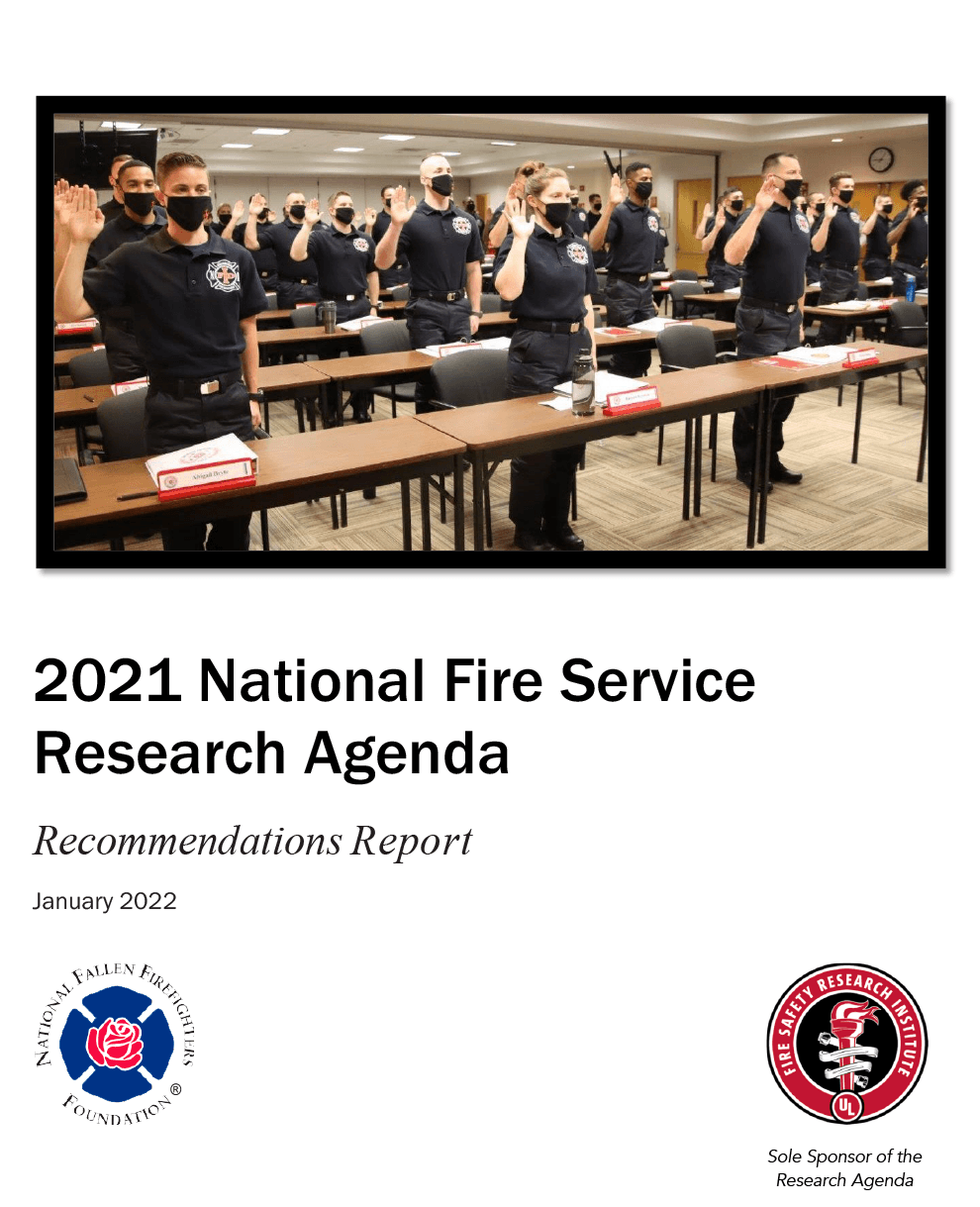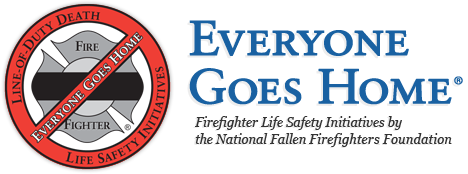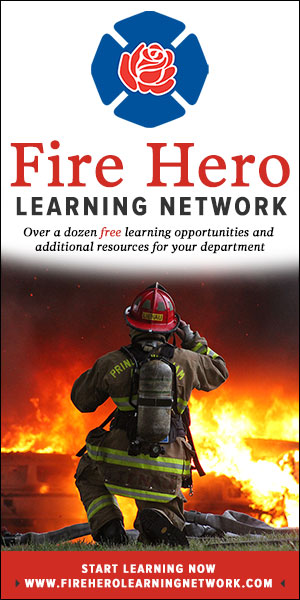
Researchers and fire service practitioners met virtually last year for the 4th National Fire Service Research Agenda Symposium resulting in the National Fire Service Research Agenda Report with nearly 300 recommendations. Symposium participants worked in three facilitated working groups to create recommendations to have the most significant impact on firefighter health and safety. The facilitators then submitted the recommendations as worksheets to an expert jury of researchers and fire service representatives. After reviewing the recommendations, the jury was able to modify recommendations and move recommendations to other domains as needed. The report includes the finalized recommendations and the working groups’ original worksheets. The National Fallen Firefighters Foundation (NFFF) hosted the National Fire Service Research Agenda Symposium, and UL’s Fire Safety Research Institute (FSRI) was the exclusive sponsor.
NFFF Chairman of the Board of Directors Troy Markel said, “Our commitment to create a fire service national research agenda is embedded in the 16 Firefighter Life Safety Initiatives through Initiative #7. But even more critical than that, is our commitment to take a multidisciplinary approach to firefighter health and safety by providing the opportunity for researchers and fire service representatives to map out the future needs of the fire service. The result of this consequential collaboration are the recommendations in this report.”
The reoccurring theme in each of the working groups was the need for the fire service to approach research and complex issues by collaborating with other disciplines and industries outside of the fire service. The Executive Summary includes key research needs, which many of the working groups discussed as overarching needs of the fire service, not specific to one topic. Also in the Executive Summary are considerations for researchers on disseminating research into the fire service.
Steve Kerber, Executive Director of FSRI, added, “The research conducted today is without a doubt making a difference in the health and safety of our nation’s firefighters and communities across the country. It is promising to read these recommendations created with the input of firefighters and envision what the future of fire service research can be.”
The report features the working group recommendations based on their domains topical area. The planning committee determined the three domains to be:
- Domain #1: Hiring/Retention/Advancement included recommendations on recruitment, effective leadership, diversity/equity/inclusion/belonging, and hiring, promotion, and retention.
- Domain #2: Effective operations included recommendations related to training, tactics, tools, equipment, apparatus, personal protective equipment, and community risk reduction.
- Domain #3: Health and safety included recommendations related to wellness, understudied populations, cardiovascular health, cancer, mental health, metabolic health, reproductive health, occupational medical evaluations, fatigue, injury prevention/assessment, violence prevention/risk assessment, and work environment.


